Brian Lewis or "The Professor" is considered by many content producers as one of the best in the business on YouTube and to the same extent seen as controversial in certain videos when criticizing some postures and actions of Wizards of the Coast, it has a content very rich in information and entertainment.
The Professor is also known to be involved in social causes. At the end of 2020, he helped with the donation of 140,000 dollars, money raised through the sale of a collection with almost all the cards of the Beta set. The income was divided between two American institutions: Saving Our Sons and Sisters International, an institution that funds young black Americans and Trans Women of Collor Collective
, which allocates funds to provide opportunities for trans women in the black community.
So let's move on to the questions and get to know a little more about The Professor.
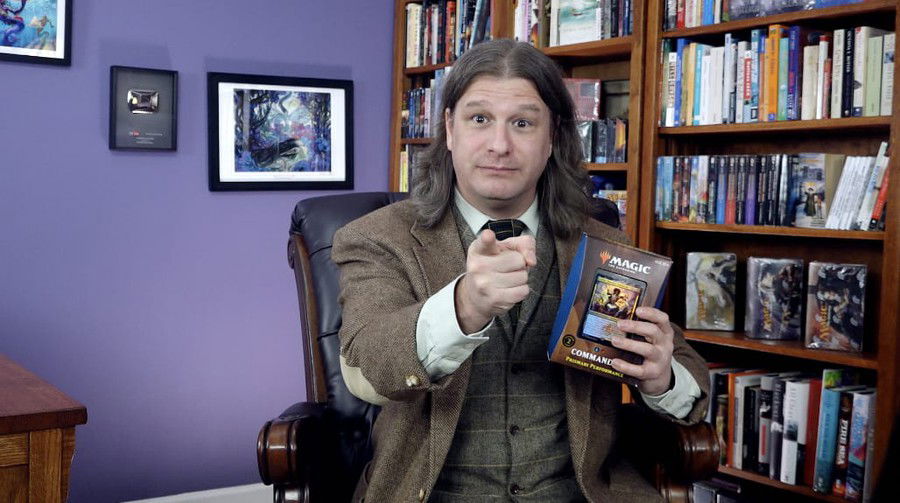
1. How did you get to know Magic and what are your favorite formats?
The Professor: I started playing Magic: The Gathering in highschool. The year was 1994 and I bought sets like Revised, Fallen Empires, Homelands, and then later 4th Edition and Ice Age. In fact, my first ever job was to earn money to buy booster boxes of Ice Age!
2. What was your life like before Magic? Can you imagine what it would be like if you hadn't met? What would you be doing?
The Professor: I have a video called “Dominaria Was Lost But I was Saved” which talks all about how deeply Magic saved my life back in high school. Through it I made friends, explored my own imagination and creativity, and later took control of my life. In fact, thinking of the latter, and how Magic allowed me to succeed with my YouTube channel and leave my dead end job behind, you could argue Magic saved me more than once!
3. In the field of content production you are one of the most influential and well-known of all. We have been with you since 2013 and saw your famous video on the best sleeves. A lot has changed since then, when have you realized that youtube could be your job and maybe your main source of income?
The Professor: The biggest moment was when I made a Patreon and, instead of only getting a few hundred dollars like I expected, got enough money to quit a few of my classes and become a part time content creator. As I grew and defined the business, I reached a point where I realized that I could walk away from what little teaching I was still doing and be fine. This was a very lucky realization, because not too long afterwards I lost my classes due to low enrollment! That was when I decided never to look back.
4. We saw that you produce several different types of content: deck techs, podcasts, comedy skits, lore, product report grades. Which one is your favorite, which one is the most controversial and which one usually receives the best feedback?
The Professor: It’s always changing. You can’t chase the best results if you are measuring success in views or engagement. I do videos that get 100k views and others that get 30k views, but both are important to me. I measure my success based first and foremost on whether I love creating the video that I am creating. To chase views, in my opinion, is self-destructive.
5. “Magic: the Gathering is dead!”. This is the famous phrase that we will speak for all eternity. But it's not all the fault of Wizards of the Coast. When you look at the Magic community, what do you see that could be better about the players?
The Professor: I wish players could work to control their addiction to this game more. Too often, we see exploitative products or just bad products made by Wizards of the Coast, and everyone is upset but they still buy it. So how can you blame Wizards for continuing to cut corners when sales keep going up even when they do? If players were a little bit more careful with how they spend their money on this game, then maybe there would be more pressure for Wizards of the Coast to make better quality products.
6. Okay, but some things are the fault of Wizards of the Coast. Magic is the best game and I can't imagine it not being part of our lives, but Wizards do a lot of mistakes (and hits too of course!). Many players have disengaged from Wizards by creating cheaper or truly non rotation formats: Pauper Commander, Penny Dreadfull, pre-Modern and Pauper. How do you see these formats?
The Professor: I fully support them. They are a great way for players to take control and, in some ways, ownership of the game. You don’t have to play by Wizards Of The Coasts rules, as it were. You can invent what Magic means to you. I love formats like Pauper as a kind of rebellion to the high cost of Modern, the lack of support for Legacy, the always rotating Standard. Here players are saying, “I want to play with cards from throughout Magic’s history, but I don’t want to spend too much money.” The game is ours to do with as we will, and so I always love formats like the ones you have mentioned.
7. You talk a lot about Pauper. What we players and content producers could do to encourage or at least draw Wizards' attention to this format, attention to the point of offering a set geared to the format and also large tournaments?
The Professor: Drawing Wizards attention is the last thing you want to do. Look at what they have done to Commander! You don’t want that to happen in Pauper. The real power lies in the community, and in the local game stores supporting and encouraging Pauper gameplay at events. Wizards will just try and figure out how to make the format something that you need to buy product in order to play. Game stores will try and make the format something you can play. Support the game store model, not the mass consumerism Wizards of the Coast is driven by.
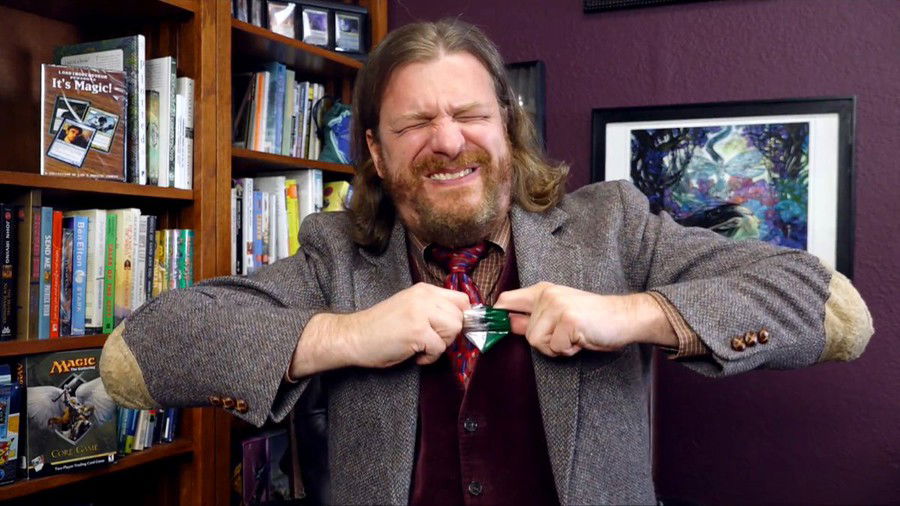
8. Let's imagine a hypothetical situation: you just become the owner of Wizards of the Coast, what changes would you propose? In any aspect, platforms, marketing, content production, attention to content producers, formats, players, etc.
The Professor: I would shift the model to have a much greater emphasis on the local game store. I would want to offer incentives and deals to game stores to encourage them to carry our product, and to foster growth of gameplay and community. Wizards right now thinks they can exist on Amazon and direct sales alone. Maybe that’s true, but what kind of existence is that? If I were in charge I’d want to reshape the philosophy about what our goals are.
9. Personal question, what foods do you like best? It's very random, but as a former professional cook, I'm very curious about international cuisine, and American cuisine is no different, as the combinations of different flavor profiles are very explicit out there, like salty and sweet, spicy and citrusy , etc.
The Professor: I love all food and drink. I was a very picky child, but when I grew up I discovered a real love of tastes and sensations. There’s nothing I won’t eat! Everything is delicious. I love everything from pizza to sushi, from steak to chicken curry, from wine to whiskey! If I absolutely had to pick favorites, I’d say a morning coffee (black as midnight) with a bagel, cream cheese and lox is my perfect breakfast, and a good steak dinner with red wine a go to dinner. But I love variety. I always want to have something different each night.
10. Do you have non-MtG hobbies? Could you tell us a little bit?
The Professor:These days it is all wrapped up in gaming. So when I am not absorbed in Magic The Gathering, I am playing other gaming and tabletop hobbies. Right now I have gotten very into Flesh And Blood, a game that harkens back to some of the earlier philosophies of Magic The Gathering. It’s a clever (and complex!) game, and I love that there’s a strong emphasis on in person play (the name is meant to emphasize that the game should be played in person, i.e. in flesh and blood)
11. Would you like to leave a message and maybe a tip for content producers?
The Professor: Make content you love. Don’t chase views or, worse, the approval of Wizards of the Coast. Aim to make better content each time, but make that content for yourself. Make something you’d love to read, watch, listen to, whatever. Always look at what you have done and ask, “How can I make this even better next time?”
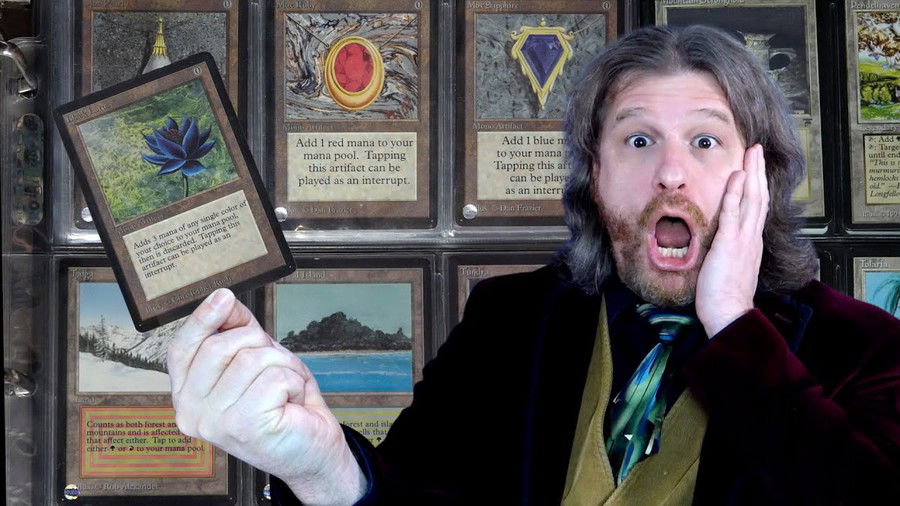
Dear readers, this was Brian Lewis, better known as The Professor. I must say that it was incredible for me to do this interview. Brian is a really kind and polite person.
Thank you very much for your participation, we really appreciate your work!
Thank you all for reading, share, leave a message in the comments and see you next time.

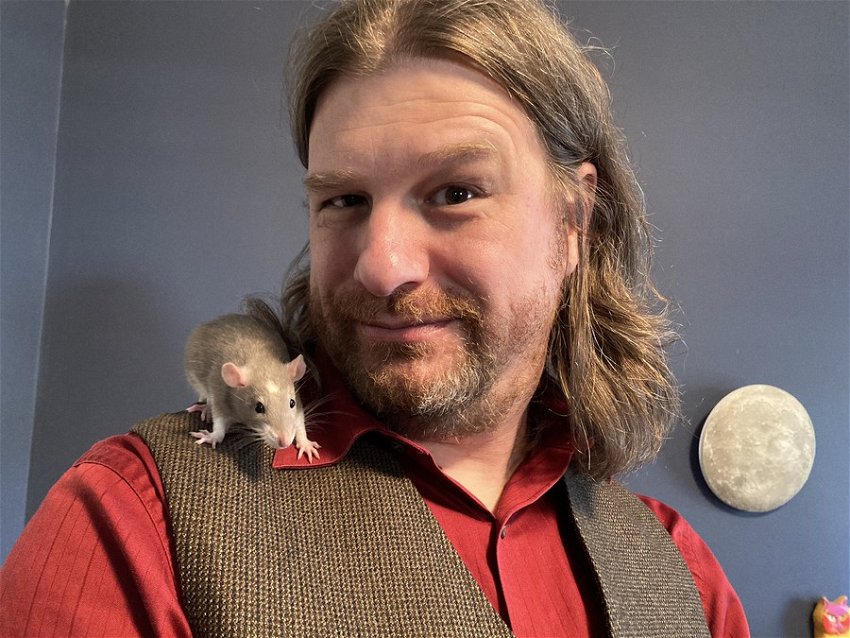






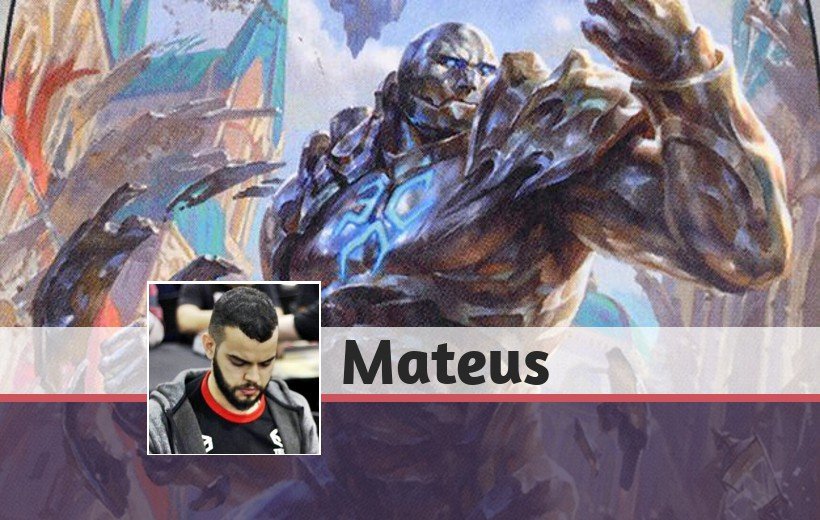
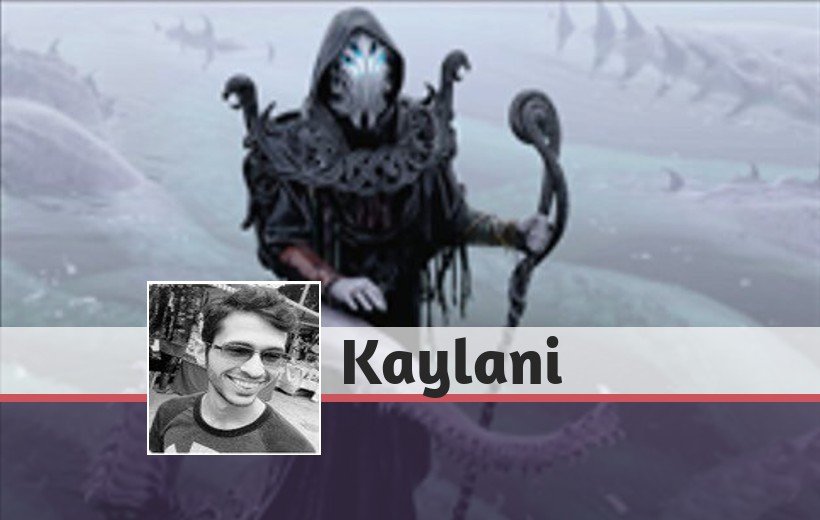



— Comentarios 0
, Reacciones 1
Se el primero en comentar